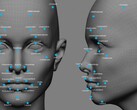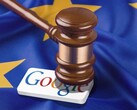Clearview.ai, a US company with a massive store of global facial data, is facing a fine of about $33.7 million in the Netherlands, along with a nationwide ban on the use of their service in commercial capacities. The Data Protection Agency, an appointed body that operates independently from the Dutch government, assessed the fine and placed the ban. A statement from the agency accuses Clearview of violating the General Data Protection Regulation, or GDPR, a set of laws governing the collection and use of personal data in the EU and the wider EEA. According to the DPA, Clearview's business practices stand in clear violation of applicable laws due to the company collecting facial recognition data from various sources without asking the consent of the people whose faces they're adding to the database, or even informing them.
Jack Muclaire, chief legal officer for Clearview, fired back that the company does not operate in the EU, and is thus not subject to the GDPR. While the DPA stated that Clearview did not object to the allegation and therefore cannot fight the fine, Muclaire said in turn that the government-appointed agency has no way to enforce the fine. He elaborated that the decision did not follow requisite legal processes. Clearview showed no intent to stop what they were doing in the EU, or even to pay the fine. The DPA warned that this could net the company a non-compliance penalty of an additional $5.6 million.
This is far from the first time that Clearview has found itself under legal scrutiny. UK authorities previously levied a fine of about $9.4 million, Canadian authorities looked into the dealings and found Clearview's activities to be in violation of applicable laws, and a fine that the company incurred in France remains yet unpaid. Even in Clearview's home country, the state of Illinois led a federal suit against the company that ended in a $50 million settlement. Part of the conditions of the settlement included Clearview not admitting any wrongdoing, leaving legal precedent for the business practice up in the air within the US. Meanwhile, many local bodies in the States, such as law enforcement agencies, continue to use the company's services.













